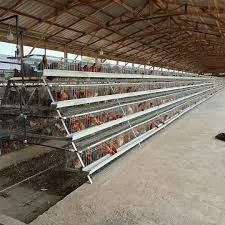Round poultry slaughter evisceration table
1 月 . 15, 2025 09:40 Back to list
Round poultry slaughter evisceration table
Ensuring optimal livestock health and productivity hinges on a crucial piece of equipment in modern agriculture the feed mixer. An indispensable asset on farms, feed mixers have evolved over the years into sophisticated machines designed to meet the demanding needs of today's agricultural industry.
Authoritativeness in the realm of feed mixers is often established through validated performance metrics and quality certifications. Leading manufacturers subject their equipment to rigorous testing to ensure reliability under various conditions. This credibility is further cemented by meeting international standards for agricultural machinery, which can often be a deciding factor for farmers contemplating long-term investments. Customer testimonials and peer-reviewed assessments also serve a vital role in reinforcing a brand's authority. Trustworthiness extends into the realms of after-sales service and support. Long-term support from a manufacturer can substantially mitigate downtime, a critical consideration for large-scale operations where any interruption in the feeding process can lead to substantial losses. A trustworthy feed mixer supplier will not only provide clear guidelines and training for optimal use but also offer robust customer support channels to address any potential mechanical issues swiftly. In conclusion, selecting a feed mixer is a decision that holds significant implications for the welfare of livestock and the success of an agricultural operation. It demands a careful evaluation of experiential insights, expert knowledge, authoritative verification, and trustworthiness. With the right choice, farm productivity can see marked improvements, translating to better livestock health and increased yields. Embracing new technologies in feed mixers, like automated controls and precision feeding systems, further underscores the strides being made within this essential domain, ushering farms towards a more sustainable and prosperous future.


Authoritativeness in the realm of feed mixers is often established through validated performance metrics and quality certifications. Leading manufacturers subject their equipment to rigorous testing to ensure reliability under various conditions. This credibility is further cemented by meeting international standards for agricultural machinery, which can often be a deciding factor for farmers contemplating long-term investments. Customer testimonials and peer-reviewed assessments also serve a vital role in reinforcing a brand's authority. Trustworthiness extends into the realms of after-sales service and support. Long-term support from a manufacturer can substantially mitigate downtime, a critical consideration for large-scale operations where any interruption in the feeding process can lead to substantial losses. A trustworthy feed mixer supplier will not only provide clear guidelines and training for optimal use but also offer robust customer support channels to address any potential mechanical issues swiftly. In conclusion, selecting a feed mixer is a decision that holds significant implications for the welfare of livestock and the success of an agricultural operation. It demands a careful evaluation of experiential insights, expert knowledge, authoritative verification, and trustworthiness. With the right choice, farm productivity can see marked improvements, translating to better livestock health and increased yields. Embracing new technologies in feed mixers, like automated controls and precision feeding systems, further underscores the strides being made within this essential domain, ushering farms towards a more sustainable and prosperous future.
Latest news
-
Battery Layer Cage Systems With Automatic Feeding Machine
NewsMar.07,2025
-
Hot Selling Multi Function Vacuum Packaging Machine
NewsMar.07,2025
-
Chicken scalder plucker machine for sale poultry scalder chicken plucking machine
NewsMar.07,2025
-
Egg Tray Making Machine 1000, 2000, pulp molding machine
NewsMar.07,2025
-
Automatic Feeding Line System Pan Feeder Nipple Drinker
NewsMar.07,2025
-
cage layer chicken
NewsMar.07,2025






